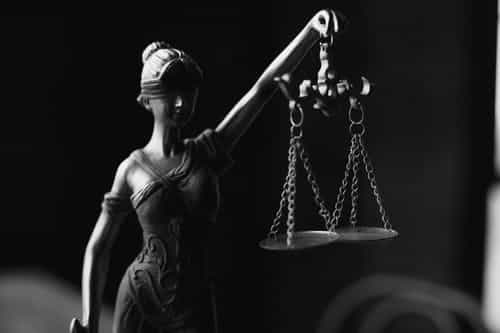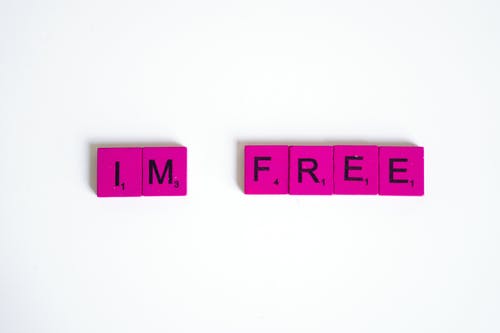The list of things I gave a shot in the hopes that by doing them it would bring me closer to recovery from anorexia nervosa is endless.
As is the list of the things most of the people who show up to my office or to work with me online in freeing themselves from their own eating disorder have tried before they find me. Fun fact no one goes to a hypnotherapist as their first port of call (past me included).
What I’ve come to experience is that it is not one thing overall which will equal your recovery but a culmination of the little things which add up quickly or slowly over time.
I can tell you that even through I consider myself recovered for years now my life continues to get better and better.
Three years ago, I was at a place the year before I never thought I’d reach.
Two years ago, I was at a place the year before I never thought I’d reach.
A year ago, I was at a place a year before I never thought I’d reach and today I am at a place a year ago I never thought I’d reach.
This isn’t because my life was bad or miserable last year, two years ago or three years ago (it wasn’t, it was fantastic!) it is because things just keep getting better. Your discovery and learning doesn’t stop once you’ve reached “recovered.” This is just the begining.
There was a distinct moment where I was hit with the realisation that recovery was possible.
Before that moment I was striving for recovery every day but can see looking back now that I didn’t believe in my heart of hearts that it was possible. Obviously, an impossible place to actually recover from but I didn’t know that because I wanted it so badly.
I just kept trying, kept pushing on. I didn’t know any other way of living (yet).
Then, during the time, I was seeing a clinical hypnotherapist I began to collect distinct points in my recovery where I knew things had changed and were changing. Distinct moments where I knew things had changed too much and that going back had become impossible.
I even believe there was a distinct point where I knew I’d recovered or rather distinct moments where I knew there was no going back.
But it didn’t stop there.
That wasn’t the end of my story like I’d imagined it would be due to the fact that my life’s purpose had become the pursuit of the ephemeral and ever elusive “recovery.” I kept improving, kept learning, kept growing, kept changing and I still am.
No longer is it about just getting free of the eating disorder but about becoming more and more the person I want to be and contributing to being a part of a kind and meaningful world. You might think the goal is to be free of the eating disorder and you’re right but what does being free of the eating disorder actually mean?… It means living, doesn’t it?
Therefore, recovery from the eating disorder is preparation and practice for everything you need to know, do and be in order to live the life you want to live.
Your self-development does not end when you are recovered. That’s when your self-development truly begins.
Your self-development and ability to impact others and this world are limitless.
I want you to experience that knowing. Which is why in this blog I am sharing 5 of the things I did or rather stopped doing which made a difference in my recovery.
5 things which, had I not done them I don’t think recovery would have been possible.
Perhaps, as you read them you can recognise which (if any) you are doing now and if you just work out a way to stop, everything may change in ways you cannot yet imagine (as I can tell you, hand on my heart it did for me).
Hint – get help to stop. If you could have worked it out on your own or will-powered your way to freedom you would have by now. Willpower, determination and motivation are not what you’re lacking. You’ve got them in abundance. What you’re likely lacking is the part where it feels ok to not do that thing/those things anymore.
So, without further ado here are 5 of the things which I stopped doing and because I was able to do that (or rather able to find ways which made me able because initially and during many prior attempts I really wasn’t able) made a difference in my recovery…
- I Stopped Waiting to Want to Eat

When I was sick it was very important to me that I wanted to eat. Otherwise, I just wouldn’t eat.
The gastrointestinal upset during recovery is real. It is full on. It is honestly all consuming. Combine this with an unrelenting fear of eating and an overactive and hypersensitive brain-gut axis and you may be able to begin to appreciate just a snippet of why eating in recovery is so hard.
I still get gastrointestinal problems today that I believe are hangovers from what I put my body through, mostly bloating and even as a dietitian I can’t make the assessment whether this is “normal” or not and you know what I simply no longer care.
Don’t get me wrong I care for my body immensely but this care most definitely comes from a place of love and growth versus a place of fear and avoidance. I do my best to do good by my body, but I am not micromanaging my diet under the misguided notion that this will be the answer to all my problems.
When I stopped waiting to want to eat, stopped waiting to be hungry, stopped waiting for my stomach to be flat and just ate (and ate and ate) despite it all that’s when things changed. As a side note even today, I eat many it not most of my meals without being the level of hunger that diet culture would have you believe you have to be in order to eat.
I know if you’re going through recovery and you’re anything like I was you are probably at times searching for the reassurance that eating will indeed be “worth it”. That eating through the pain and turmoil will lead to you being able to heal the real stuff – the stuff inside your mind and you want this knowledge before you do the eating. That you’re not going to just eat, gain weight be in a larger body and compounded on top of that not be able to handle the self-hate and demons within your mind. But no matter how much you want that the reality is you can’t have that.
That’s simply not the way recovery works.
That’s not the order these things happen.
In order to truly heal the stuff inside your mind you have to eat first long before you know it’s going to work out.
In order to truly heal the stuff inside your mind you have to eat first long before you know it’s all going to be ok and “worth it.”
You have to get to a place where mentally you are capable of confronting the stuff inside your mind versus just numbing, avoiding and suppressing through starvation. That requires a fed brain and depending just how far you want to take it that requires a really well-fed brain which in all honesty takes years. So, you might as well start now…
Which is why I mentioned in the beginning that compared to even a brief three years ago even when I would have considered myself recovered, I am today in a place I never could have imagined possible then or two years or even one year ago because things just keep getting better.
You can’t possibly know now what’s possible for you in 2 weeks’ time let alone a year.
Consider giving up the condition that you must feel hungry, to not be in pain even, to enjoy eating or to want to eat in order to eat.
The truth is you can eat without wanting to, just as you can brush your teeth without particularly wanting to.
Future you will thank you.
2. I Stopped Waiting to Eat With Others

Relatively early in the eating disorder I developed an obsession with only eating when other people were around to “witness” me eating.
At some point I started to justify this inability to eat alone in all sorts of ways including that people didn’t think I was going to eat alone anyway so I might as well just not. Mostly I projected this onto my parents but also other people who honestly wouldn’t have given a damn if I ate or didn’t eat.
If I were to consider eating anything alone it simply felt like a waste. So, I stopped considering it. It just became like so many other things the way that it was. I was just someone who didn’t eat alone.
There had to be some important reason to eat, and I just couldn’t find any (not even the fact that I had irregular heartbeats, was freezing all the time, couldn’t go to school and in hindsight realise I was highly suicidal. Hmmm this is how messed up the “logic” of living with an eating disorder is).
If I am honest while this obsession lessened and eased a lot this was one of the last things to completely go.
There were times in my recovery, in particular times when I was travelling alone, that eating alone was something I had to do. However, the knowing that it was something I had to do for a purpose and reason such as I wanted to keep travelling and ahem I didn’t really want to die just yet were the motivators for eating alone. Which meant that even though I able to force myself to do it I hated it. It never felt right.
Now, it does feel right.
Now, it is not an effort in the slightest. Now I am not eating for any other reason such as I am in recovery or I “need”. I don’t have to motivate myself or pep talk myself into eating because I eat because I care about myself.
I eat the same things alone and with others, but this level is an absolutely recent addition. I didn’t go from one to the other overnight.
It’s only fairly recently that I’ve found myself naturally readily eating alone and enjoying it.
That is eating adequate meals and snacks alone (versus just vegetables or fruit and waiting to be with others before I ate anything delicious or of meaning).
It’s only relatively recently that I’ve found myself spontaneously and without prior planning and pep talks about its importance, simply eating.
Simply doing it because that is what my body is asking for.
It’s only relatively recently that I can hand on my heart say I want to eat and have let go of any moral judgement of what eating means. It is to me now in every sense of the term “just eating.”
You may have to start with some “reasons” why you should eat and you may have to do it when it feels horrendous but please know that this is the learning period, this is the training wheel period and is not an indicator that it will be this way forever.
We don’t do recovery for recovery sake, we do recovery for recovered.
3. I Stopped Compairing and Judging Myself

During my time seeing a clinical hypnotherapist I stopped my relentless obsession and pursuit of “normal” and began to listen to my body.
Revolutionary right?
You wouldn’t think so but if I had a dollar (or 1 cent) for the number of times someone has sat in my office and lamented that they just wanted to be normal I’d be a very wealthy woman.
Just the other day I had a client ask me if I could give him a meal plan of what would be a “normal” amount for him to be eating. After flat out saying no I of course have to give some justification as to why not and that justification came in the form of a few questions back to him (I do give meal plans as guides but like to make a point first).
- If you could know what was normal to eat what would that change?
- He immediately answered, “then I’d eat it” and immediately after that recognised that actually he wouldn’t and knowing what would be the “normal” amount for him to eat was just a way of looking for outside permission to eat more than he was.
Spoiler alert there is no one out there who can tell you better than you can tell yourself what you “should” be eating.
Not only because you are an entirely unique human being but also because eating disorder recovery is not a “normal” situation for humans to be in. You will have to eat far beyond what may be “normal” for others your age, height, gender, activity level and so on. You will. That is one of the few guarantees of recovery I can confidently make.
Think of it this way if there was a bed in the corner of the room with 6 pillows and a soft doona on it and I were to tell you to get into that bed and arrange your left arm above your head, two of the pillows under your legs and one under your right ear and to bring your left leg up just a little and then you will be comfortable or if I were to tell you to get into that bed over there and to please make yourself most comfortable which option do you think you would truly be able to experience the most comfort in?
Only you have the answers to how much your body needs to eat. This is one of the hardest things I had to learn in recovery, and it wasn’t just food I had no clue about it was everything.
You need to learn to rebuild that connection between your mind and your body and the sooner you do this the sooner you’ll be able to move on with the things in life which are most important to you. Which I am willing to bet a substantial amount of money is not really whether you eat a “normal” amount of food. That’s not important to anyone. Who cares?
At many points in my recovery, I tried to stop comparing what I ate to others, I tried to tell myself it didn’t matter but boy did it feel like it mattered. It felt like I could get it wrong, it felt like I was getting it wrong.
I now know there is no wrong and I now feel there is no wrong. I want you to not just “know” that intellectually but to feel that too and the only way to feel that is to do that and to begin to prove to your mind that you have indeed “got this.”
4. I Stopped Pretending to Be Ok

When I think back on the years, I spent living with anorexia they are characterised by lies upon lies upon lies and the biggest lie of all perhaps was that I was “ok.”
I presented the happiest, most carefree facade to the world. “Good” was my predetermined answer to any and every question about my wellbeing. A lie I told with good intentions because I thought it was my responsibility to protect others, to keep others comfortable but it was a lie none the less.
About 14 years into my “recovery” and after a particularly bad hospitalisation I gave up pretending to be “ok.”
I gave up pretending to my friends, family and even to myself that I was ok and even that I was improving or recovering because after that hospitalisation I was no longer so certain myself that I was improving or recovering at all.
I’d always been trying to convince myself and others (it was more important to me that others thought I was improving than it was to me to actually be improving hmmmm…) that I was just a step away from recovery otherwise what was the point of it all?
If I wasn’t improving what was the point of going on?
What was I working towards if everything I’d done wasn’t working?
With all the evidence lined up, with all I’d just been through landing me in hospital and the hospital experience itself I could no longer cling to the flimsy delusion that the things I was doing, who I was, were any form of normal or ok.
I gave up.
Or at least that’s what it felt like at the time but looking back I now more see that time as surrender.
As a choice to let go.
I didn’t have to but I chose to let go of all I’d known and open to the possibility of something new. A choice that I didn’t know at the time was absolutely necessary to clear the way to only then begin to make my life anything other than what it was.
This surrender to the unknown was both an immense relief and utterly horrific at the same time.
It was a relief because I no longer had to lie and it was horrific because of the backlash of utter shame which came with telling people who’d always seen me one way the (messed up, totally insane and delusional) truth.
There were things I couldn’t even explain or understand myself but I did my best.
At 27 years old I started to tell my friends and strangers why I couldn’t come to things “sorry I can’t come to dinner because I won’t be able to eat the amount of food I need to eat”, “sorry I can’t sleepover because I won’t be able to stop myself going for a run on my way home from your house the next day”, “sorry I can’t go on a date with you because I am in recovery from anorexia nervosa” and so on and so on.
Embarrassing, shameful, mortifying doesn’t even begin to cut it.
To have these things that I’d been taught to hide, to be ashamed of and to never share thrown out there in the open where I could not take them back and where I had no cover was threatening.
But I am proud that I did it again and again because through doing so it began to decrease the embarrassment, the shame, the mortification. It began to make all those things I’d been horrified of ok.
They say acceptance is the first step of change and I agree.
There was monumental freedom in telling the truth and with freedom comes the ability to move and ultimately with time and effort the ability to choose. You just don’t know that when you choose to accept but it makes sense that we simply cannot hope to change problems we’re not first wiling to accept we have.
What I found was while many people simply didn’t get it and others probably thought I was a bit of a weirdo for saying it a lot of people actually respected me for my honesty even when they didn’t understand and most importantly, I respected myself because being honest was and still is a non-negotiable value of mine.
It is my belief that building self-trust and self-esteem are key features of eating disorder recovery (and of living any level of an authentically fulfilling life) and in order to have self-esteem you must hold yourself in esteem. That’s what self-esteem means, that you are someone you respect. If you’re lying to yourself and others for any reason (shame, protection, fear) you’re likely not holding yourself in that greater esteem and respect.
Consider being radically honest. You may be surprised with the outcome.
5. I Stopped Exercising

The amount of exercise I did when I was sick was utterly phenomenal especially given the malnourished, starved state I existed in. At the time I didn’t see it as all that excessive because it was simply what I did. It was who I was.
My entire life revolved around planning when I could exercise next. I arranged uni timetables, work, seeing friends and family, everything around exercise. Nothing was more important to me than fitting in that exercise.
Do you want to know something sad? Stopping exercise is hands down the single toughest decision I have made in my life.
Which is why I fought tooth and nail to do recovery any other way other than one which required stopping the exercise.
Any. Other. Way.
To give up everything else but to please, please, please be able to just keep exercising.
To make it work.
Which is why like the oh so common story of someone trying to give up smoking I made the excruciating decision to stop exercising more than once.
I gave it up many times with always a part of me knowing that I’d come back to it and that was what made giving it up ok because it was only ever temporary.
I was able to give it up briefly.
Where things changed was when I gave up exercise indefinitely. I stopped with no intention of returning to it, no safety net and no caveat that I was giving it up for just a period of time because anyone can change a behaviour, anyone can force themselves to do or not do something if it is only temporary. The real challenge is in making these changes permanent.
The real challenge is in making these changes lifelong, a normal and natural part of who you are and that requires letting go of all that has kept you stuck. That requires doing things differently because after all doing things differently is the definition of recovery and recovered is it not?…
I know that even the thought of seriously stopping doing these things, maybe it’s exercise for you and maybe it’s something else, may feel impossible now. I also know it may not feel worth it. I also know you may not feel worthy of it. I want to encourage you to consider giving yourself the chance to find out.
I want you to give yourself the chance to recover and then make the assessment of what was and wasn’t worth it.
I want you to give yourself the chance to recover and experience life as the kind of person who would love you so much and have so much compassion for you that of course they would think you were worth it and then make the assessment of what was and wasn’t worth it.
Summary

In the end your recovery is only ever a possibility.
Your recovery is not a guaranteed and this may feel harsh to read but it is the truth and I think any pretence and mollycoddling that you are definitely going to recover would be unfair. Which is why I share with you this list of 5 things I stopped doing during my recovery and which actually went leagues towards making recovered a reality and no longer just a dream. Because I hope that you can us this information in a way that feels right for you.
There are many more things I stopped doing and many more things I started doing which held just as much power as these 5 I’ve chosen to share with you today but because they all contribute, and we can never know anything for certain I thought it worth sharing a sample of mine. Perhaps to get you started because when I was in the thick of it, it seemed impossible, and I’d have loved some hard and fast steps. I’d have loved some clarity. When it feels like everything is an overwhelming mess that you couldn’t possibly hope to bring under control the best thing, I’ve found is to start with something.
Now, I want to hand it over to you.
Would you be willing to write your own list of 5 things you do and which you’d have to stop doing in order to recover?
Would you be willing to write your own list of 5 things you don’t do and would have to do in order to recover?
Maybe there’s some overlap with my 5 or maybe you can come up with completely different ones. It doesn’t matter.
All that matters is that you do come up with some and that they you are true for you because at the end of the day your recovery can only be achieved by you.
At the end of the day your life can only be lived by you.
With my whole heart I hope you found this information useful and inspiring.

Become Great. Live Great.
Bonnie.



